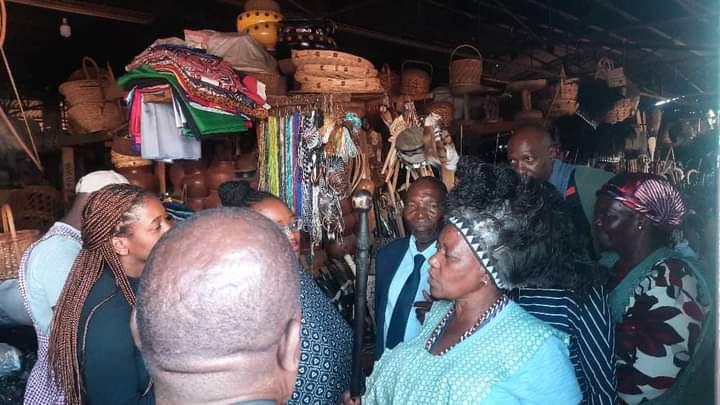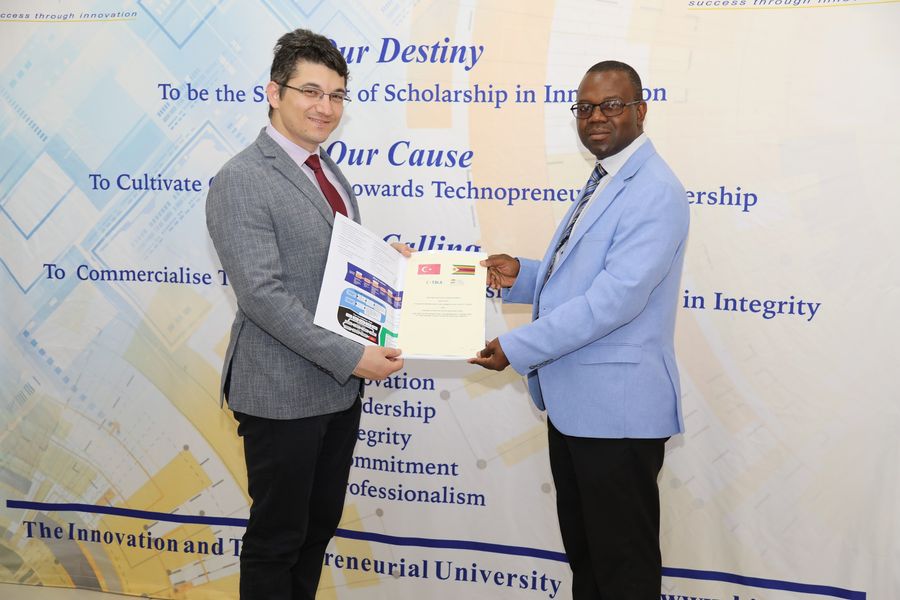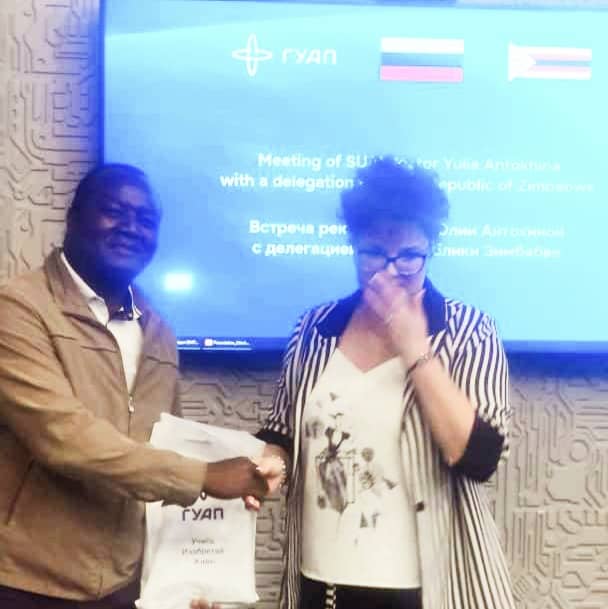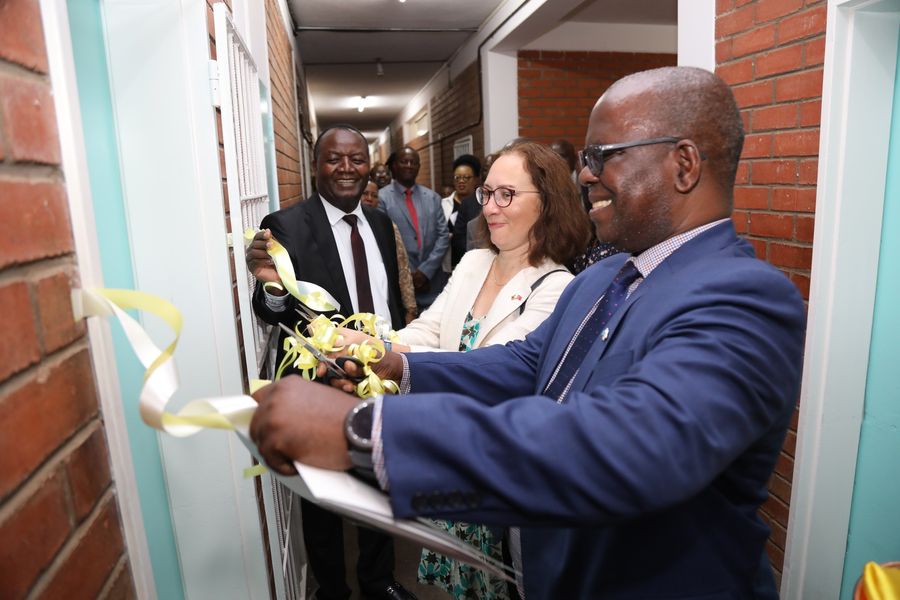HIT and the Council for Scientific and Industrial Research (CSIR) technical meeting to discuss work packages one and two, the financing and procurement of the Southern Africa Development Community (SADC) Support to Industrialisation and Productive Sectors (SIPS), was held on the 18th of May 2023 on campus.
The HIT SADC-SIPS Project aims to develop safe, efficacious and quality remedies based on traditional medicines and indigenous knowledge Systems (IKS) to manage the Human Immunodeficiency Virus (HIV) and Acquired Immunodeficiency Syndrome (AIDS).
The meeting also discussed the research collaboration agreement and research ethics on medicines for HIV/AIDS treatment.
In his address to this inaugural HIT/ CSIR meeting, ahead of the execution of the objectives of the SADC-SIPS grant programme, HIT Vice Chancellor, Dr Engineer Quinton Kanhukamwe said that he was very delighted that HIT was part of the team mandated to run with this very important regional programme.
Dr Eng. Kanhukamwe added that there is no doubt that the outcomes envisaged from this project will bear a significant impact on the HIV/ AIDS communities of the region. “It is well known that conventional Western medicines do not always give the desired therapeutic effects, or at least when they do, there often tends to be a manifestation of some undesirable side effects as well. I have been informed that this project will build a case around medicines that have an established history of high efficacy and demonstrated safety and I am therefore extremely optimistic that this project will positively turn around the fortunes of Southern Africa, and indeed the rest of the world, in terms of HIV/AIDS management,” the HIT Vice Chancellor said.
Responding to the VC’s address, the head of the CSIR delegation and Manager for AUDA-NEPAD Agency/NEPAD SANBio and principal investigator of the project, Professor Ereck Chakauya echoed the VC’s sentiments and stressed the value of the envisaged outputs of the project.
He also expressed the need for coordinated efforts within the SADC region to tackle the HIV/AIDS pandemic. Prof Chakauya underlined that the programme was not seeking to discover entirely new medicines but to value-add and modernise traditional knowledge systems to come up with efficacious, safe and attractive medicines for contemporary times.
Prof Chakauya also expressed gratitude to the HIT Vice Chancellor for allowing the University’s members to be part of the SADC-SIPS inception meeting that was held in April 2023 and the hearty welcome the VC extended to the CSIR team on this particular visit.
The project is titled “Application of Indigenous Knowledge for Developing and Producing Remedies to Manage HIV/AIDS in Zimbabwe and Eswatini”.
CSIR members were taken on a tour of the Mbare Traditional Medicines Market where they had the opportunity to interact with sellers and some traditional medicine practitioners.





